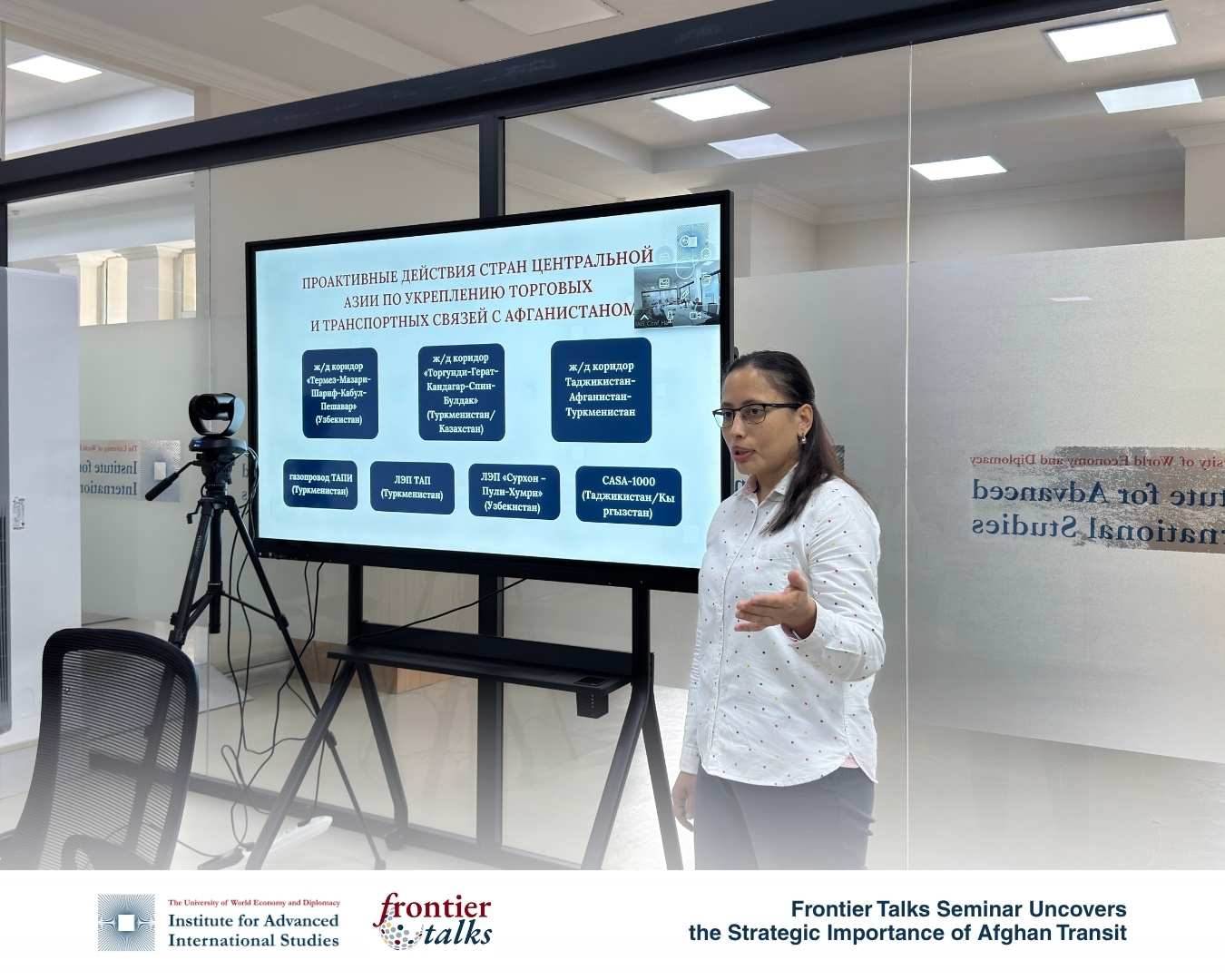
As part of its ongoing series of Frontier Talks analytical seminars, the Institute for Advanced International Studies (IAIS) held an expert seminar today by senior research fellow Nargiza Umarova on Trans-Afghan Communications Development Dynamics.
Ms Umarova’s presentation focused on key trends in the development of infrastructure corridors passing through Afghanistan, as well as the changing geopolitical context affecting the transport strategies of Central Asian countries. Particular attention was paid to the Termez–Mazar-i-Sharif–Kabul–Peshawar railway project initiated by Uzbekistan, as well as new routes promoted by Turkmenistan, Kazakhstan and Tajikistan.
The speaker noted that the move towards diversifying export markets and strengthening trade and logistics ties with the south is one of the most important vectors of regional strategy. The Taliban’s proactive transport policy aimed at strengthening Afghanistan’s transit potential despite political instability was also discussed. Nargiza Umarova analysed in detail the interests of external players such as Iran, Russia and India, which are seeking to integrate Afghanistan into their own transcontinental routes, including initiatives to expand the North-South international transport corridor and develop the port of Chabahar.
At the end of the seminar, recommendations were presented on the development of a coordinated regional strategy for Afghanistan, including the need for a coordinated selection of a priority route that meets the common economic interests of the Central Asian countries.
After the main presentation, participants took part in a Q&A session, where they discussed both the practical aspects of implementing trans-Afghan projects and the risks associated with security, political instability and competition between external players. During the lively discussion, opinions were expressed on the need to deepen regional coordination, improve the regulatory framework for cross-border cooperation, and possible mechanisms for attracting international financing.